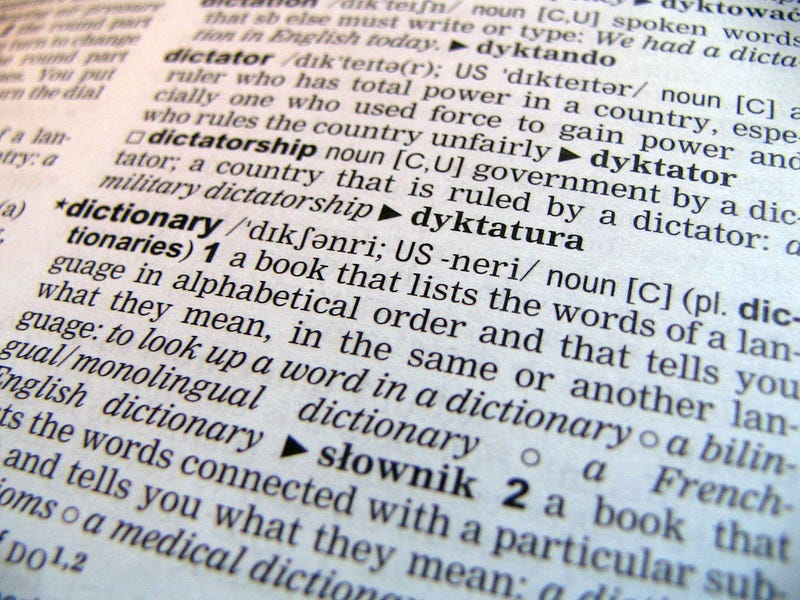Owning the labels -and the label making.
“Language is a city to the building of which every human being brought a stone.”
“Language is a city to the building of which every human being brought a stone.”
― Ralph Waldo Emerson, Letters and Social Aims
There was a trend that started a bit over 15 years ago, for startups to have names made up by adding -fy to whatever goal they were after: Shopify (2006), Spotify (2006), and also more recent ones like Cabify (2011), Productify (2012), Inventify (2016), Designify (2017), Creatify (2021) and even an app called Toiletify[1] that promises to “make your life a little less embarrassing by drowning your toilet sounds in a variety of flavors” (look it up, one can’t just make those things up).
The point they were all presumably trying to make, was to use the “-fy” suffix meaning “turn into” as a way to activate the language, putting audiences a bit more in control, as in “you Shopify your store” as opposed to someone else doing it for you.
In some of my readings on the topic of DEI, I have noticed a parallel and somewhat similar tendency to change the language in social sciences. The intention, in this case, seems to be to challenge biases and assumptions about the results of some historical, political, and socioeconomic processes.
This moves words from a simple adjective to a past participle, to imply there is action/inaction -and active/passive participants- in making it or allowing it to happen. Therefore, we have:
Marginalized groups instead of marginal groups,
Minoritized groups instead of minority groups,
Racialized communities (or even racialized occupations),
etc.
It seems like an interesting distinction because it doesn’t take these adjectives at face value, as something of a given thing, some ever-existing fact that just is. Instead, it focuses on understanding these as circumstances that are predominantly a product of a combination of factors, of the things we -as individuals and as a society- choose to do (or not do).
The key insight is that the condition is not inherent to the nature of those groups, but rather an acquired one. This makes this condition movable, changeable, and temporary. What “simply is” will always be, but what was done, can be undone.
When a characteristic holding negative connotations is presented as an adjective, it becomes an attribute, an immovable, inseparable aspect. When it is presented as a past participle, it becomes the result of a process. A result that can be altered, by modifying the process.
Of course, some people will feel attacked or offended, because they feel a finger being pointed at them. They feel fragile. They feel scared.
But the point of this language -I believe- is not to make the recipients of these words (marginalized, minoritized, racialized, etc) feel like passive actors in their own story, but rather to shine a light over the fact that:
these are not “laws of nature”, these are changeable circumstances that came to be at this particular point of history through a complex network of interrelated interests and processes.
people in these categories usually have a unique experience that may not be easily accessible to an outside observer, therefore judging them from an external perspective can lead to bias, particularly when the outside spectator has its own unique lens through which they see the world.
although there may be some common threads among recipients of these labels, the experience may not be the same for everybody, they are all “differently different”, therefore lumping them together (e.g. when talking about “minority candidates”) denies the part of their identity that makes them unique, and instead brands them -in a very reductionist way- as “non-majority”
It’s also important to note that there are forces at play that, by action or inaction, tend to keep the current balance in play. Even when action IS taken, though, results are neither immediate nor easy: homeostasis is a force to be reckoned with. We are all agents in this system, and can voluntarily choose to do something about it (or not), and we get to live with the consequences of our actions/inactions.
And although as individuals we may feel small and powerless, remember that our impact is not just the result of our actions, but the example that we project for others to see, modeling inclusive behaviors as colleagues and as leaders. Paraphrasing the ubiquitous and overused mantra, we can “be the change we want to see in the world”.
In summary, and with the caveat that moving from adjective to past participle does not mean giving it a passive voice, this feels like a positive change in the language and a reminder that there is a power in regaining ownership of those labels and of the role we have in creating them. Not as an excuse for how things are, but as an alert that things indeed came to be that way, and that we have the choice to be part of changing them.
[1] I guess Pottify was already taken…?





